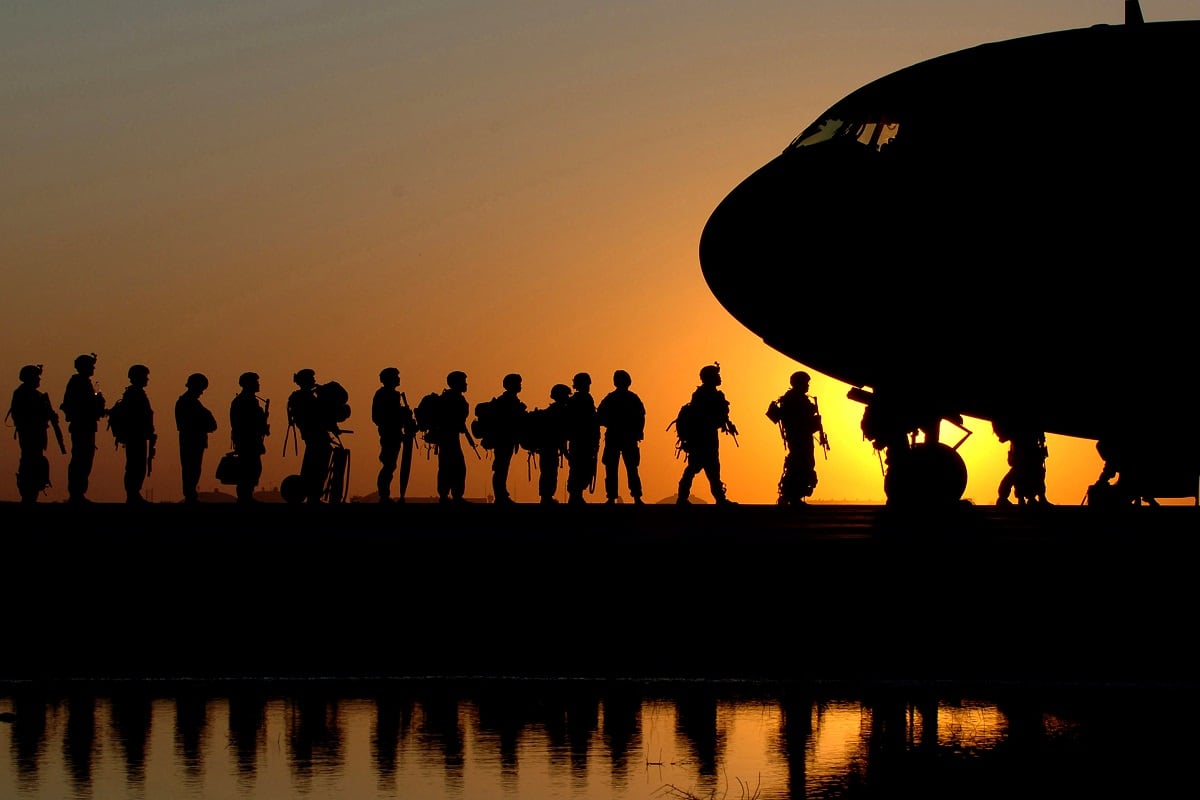It’s been about nine months since the Army began a field test for its new PT exam, and next month, the Center for Initial Military Training will begin evaluating an alternate assessment for soldiers who are permanently unable to complete the standard six events of the Army Combat Fitness Test.
The number of events will be cut in half, according to Michael McGurk, the director of research and analysis at CIMT, with three more options for an aerobic evaluation: A three-repetition dead lift, the sprint-drag-carry course and ― if they can’t complete the two-mile run ― either a 5,000-meter row, 15,000-meter bike ride or a 1,200-meter swim.
“We have to realize that there are some cases where we may choose to deploy soldiers who are not fully capable to do all the soldier tasks as the test is designed,” he told Army Times in a Monday phone interview.
On the other hand, the test is based on common soldier tasks and warrior tasks and battle drills, so every deployable soldier needs some sort of evaluation of their physical ability to complete them.
“These are the things that you do by nature of being a soldier, by nature of being in the Army," McGurk said.
You might not do them on every deployment, he added, but you’ll need to be prepared to.
“All deployments are not the same,” he said. “Being deployed to Kuwait to support operations, or to Qatar or to the embassy in the green zone in Baghdad is different than deploying with an infantry unit up into the mountains in Afghanistan or Syria.”
Testing will begin with profiled soldiers from the 63 battalions that are evaluating the ACFT now, he said.
And that rundown is only for soldiers who have permanent physical profiles that prevent them from completing the power throw, leg tuck and push-ups included in the standard test, he added.
"The whole premise behind the Holistic Health and Fitness system and the Army Combat Fitness Test is one about reconditioning and rehabilitation,” McGurk said.
Soldiers on temporary profiles will focus on healing, rather than training for a modified test.
“So, if someone is injured or hurt because of something that has challenged them – they’ve had a knee surgery or something – they don’t need to take another test, because they took one prior to this happening, certainly,” he said.
RELATED

The vast majority of soldiers on a temporary profile will recover and be able to take the full ACFT again. Soldiers who are facing a permanent injury or illness will go through a physical evaluation, and possibly a medical retention board, to figure out whether they can remain deployable.
“Globally the Army is re-emphasizing that we are a ground combat force that engages in direct combat at times. And we have to have our soldiers ― all soldiers ― physically capable of doing the minimum requirements of all soldiers," McGurk said.
Late last year, the Army unveiled its non-deployable policy, laying down six essentials:
- Soldiers have to be legally, medically and administratively ready to deploy in any mission environment.
- They must physically be able to perform in austere environments or those with harsh conditions.
- They must be able to use their assigned weapons.
- They must be able to execute their assigned warrior tasks.
- They must be able to operate wearing all personal protective gear necessary.
- They must be able to pass current fitness standards.
However, soldiers with medical profiles are evaluated individually.
“As part of that process, we will determine that your skills are such that you’re going to be retained,” McGurk said.
And, he added, commanders will work individually with soldiers to determine what their modified ACFT will look like. A soldier whose profile allows them to do their daily PT run at their own pace and distance may still be able to complete a twice-yearly standard PT test, for example.
And which alternate aerobic event a soldier completes will depend both on their abilities and what equipment is available, McGurk said.
The Army has not yet announced when its standards will vary based on military occupational specialty or type of unit, but those differences will also apply to the alternate assessment.
Meghann Myers is the Pentagon bureau chief at Military Times. She covers operations, policy, personnel, leadership and other issues affecting service members.




